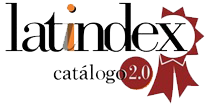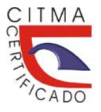Characterization of the international positioning strategies of chinese and mexican universities
Keywords:
Higher education, University rankings, University strategiesAbstract
This scientific communication presents a report on the educational strategies at the university level used by two emerging economies, Mexico and China. As a starting point, the educational aspect is important to compete among other areas, for educational prestige at an international level, for international students and academics, for leading the global level of higher education, etc. To carry out this analysis, a review of the Academic Ranking World Universities (ARWU) was carried out as the most prestigious supplement, duration on the market, rigor in its methodologies, and number of citations among the international academic community. The study consisted of making a comparison between both countries in order to find out how many and which universities are listed as world class, to later analyze the strategies implemented by both universities and governments and thus characterize the efforts of each nation, seeking obtain best practices for Mexico. Among the main results is that China has made efforts directly related to the incorporation of more and more universities in the rankings, and with a better position, always with an investigative and international vision, while Mexico has focused on developing its institutions in a domestic context and with a greater emphasis on management.
Downloads
References
AALBORNOZ, Mario y OSORIO, Laura. (2018). Rankings de universidades: calidad global y contextos locales. Revista iberoamericana de ciencia tecnología y sociedad, Vol. 13, No. 37, pp. 13-51. Disponible en: http://www.scielo.org.ar/scielo.php?script=sci_arttext&pid=S1850-00132018000100003&lng=es&tlng=es. Visitado: 20 de enero de 2023.
ARWU (2022). Academic Ranking World Universities. Shanghai Jiao Tong University, China. Disponible en: https://www.shanghairanking.com/rankings/arwu/2022 Visitado: 20 de septiembre del 2022.
BIZZORERO, L. (2015). Los países emergentes en el nuevo mapa de la sociedad del conocimiento. Revista cuestiones políticas, vol 31, No. 55, pp. 30-47. Disponible en: art03.pdf (ula.ve). Visitado: 25 de abril de 2023.
FLORES, J.E., VILLASEÑOR, J.I. y MORENO, C.I. (2015). Perspectivas actuales sobre los rankings mundiales de universidades. Revista de la educación superior, Vol. 44, No. 175, pp. 41-67. Disponible en: https://www.sciencedirect.com/science/article/pii/S0185276015000990#sec0010. Visitado: 25 de abril de 2022.
GONZÁLEZ, R.A., OCHOA, S. y CELAYA, R. (2016). Cultura organizacional y desempeño en instituciones de educación superior. Implicaciones en las funciones sustantivas de formación, investigación y extensión. Revista Universidad & Empresa, Vol. 18, No. 30, pp. 18-31. Disponible en: https://dialnet.unirioja.es/servlet/articulo?codigo=5470392 Visitado: 21 de diciembre de 2022.
SANTOS, J.M. … [et al.] (2016). Competitividad de las universidades de China y México, en el desarrollo del modelo de innovación de la triple hélice [Ponencia] Red Internacional de Investigadores en Competitividad, memoria del X congreso. (riico.net)
TOMÁS, M. … [et al.] (2015). La literatura científica sobre rankings universitarios: una revisión sistemática. Revista de docencia universitaria, Vol. 13, No. 3, pp. 33 a 54. Disponible en: https://polipapers.upv.es/index.php/REDU/article/view/5418/5398 Visitado: 25 de abril de 2022.
VILTARD, L. (2019). Educación como sinónimo de futuro. Una referencia especial a países emergentes como Argentina. [en línea]. Palermo Business Review. 2019, 20. Disponible en: https://repositorio.uca.edu.ar/handle/123456789/9915. Visitado: 12 de enero de 2023.
Downloads
Published
Versions
- 2024-03-07 (2)
- 2023-05-25 (1)
How to Cite
Issue
Section
License
Copyright (c) 2023 Universidad & ciencia

This work is licensed under a Creative Commons Attribution-NonCommercial-ShareAlike 4.0 International License.





















